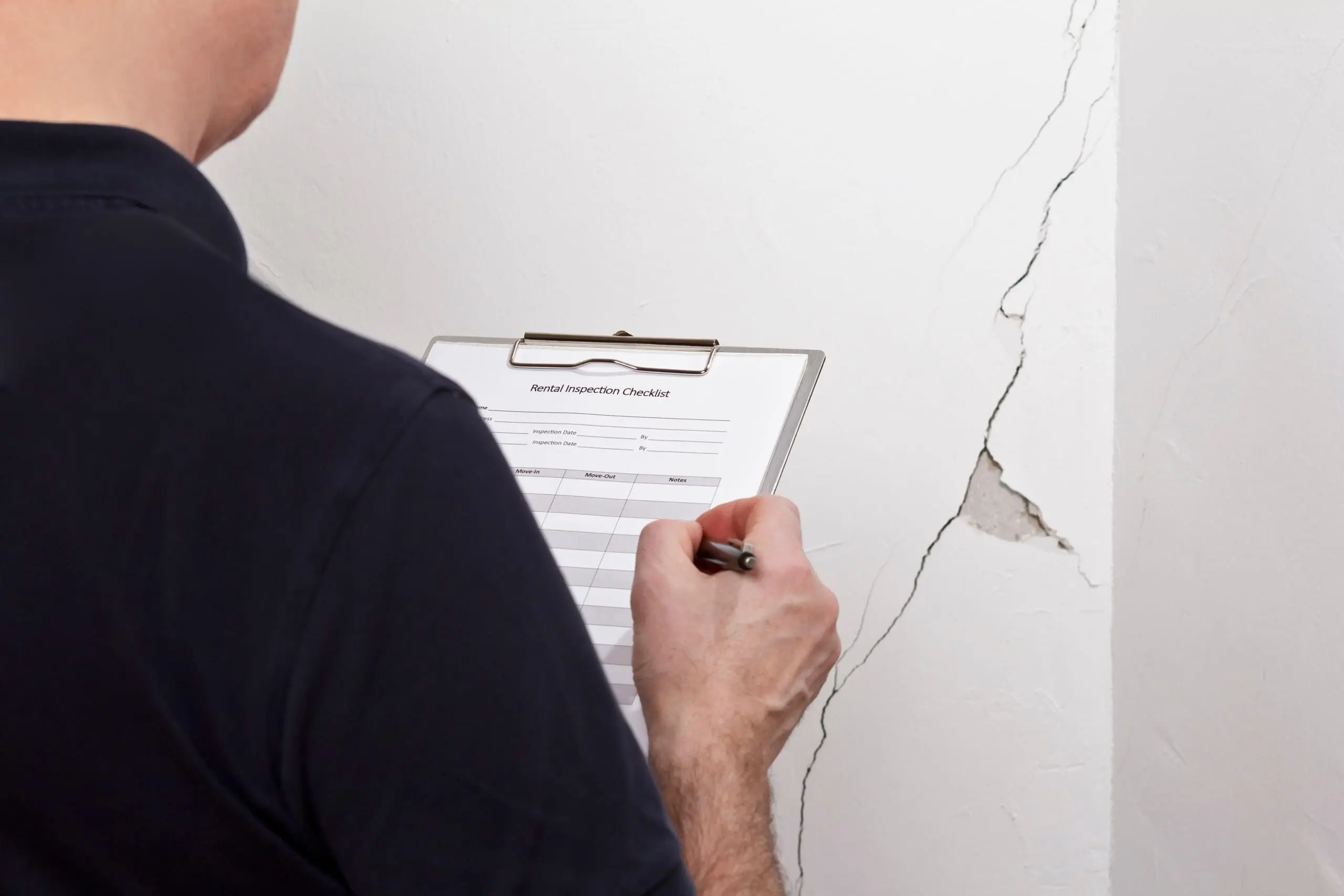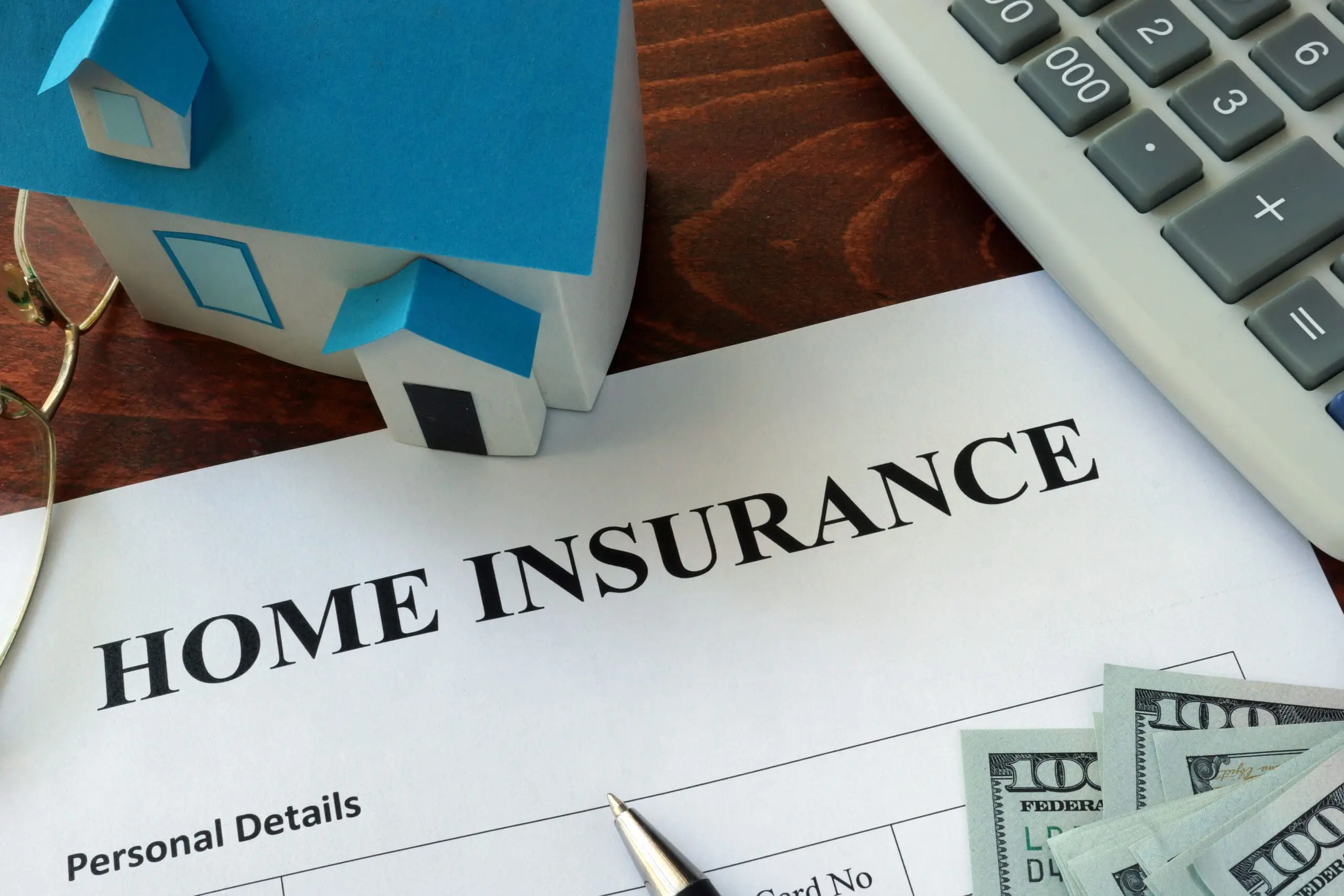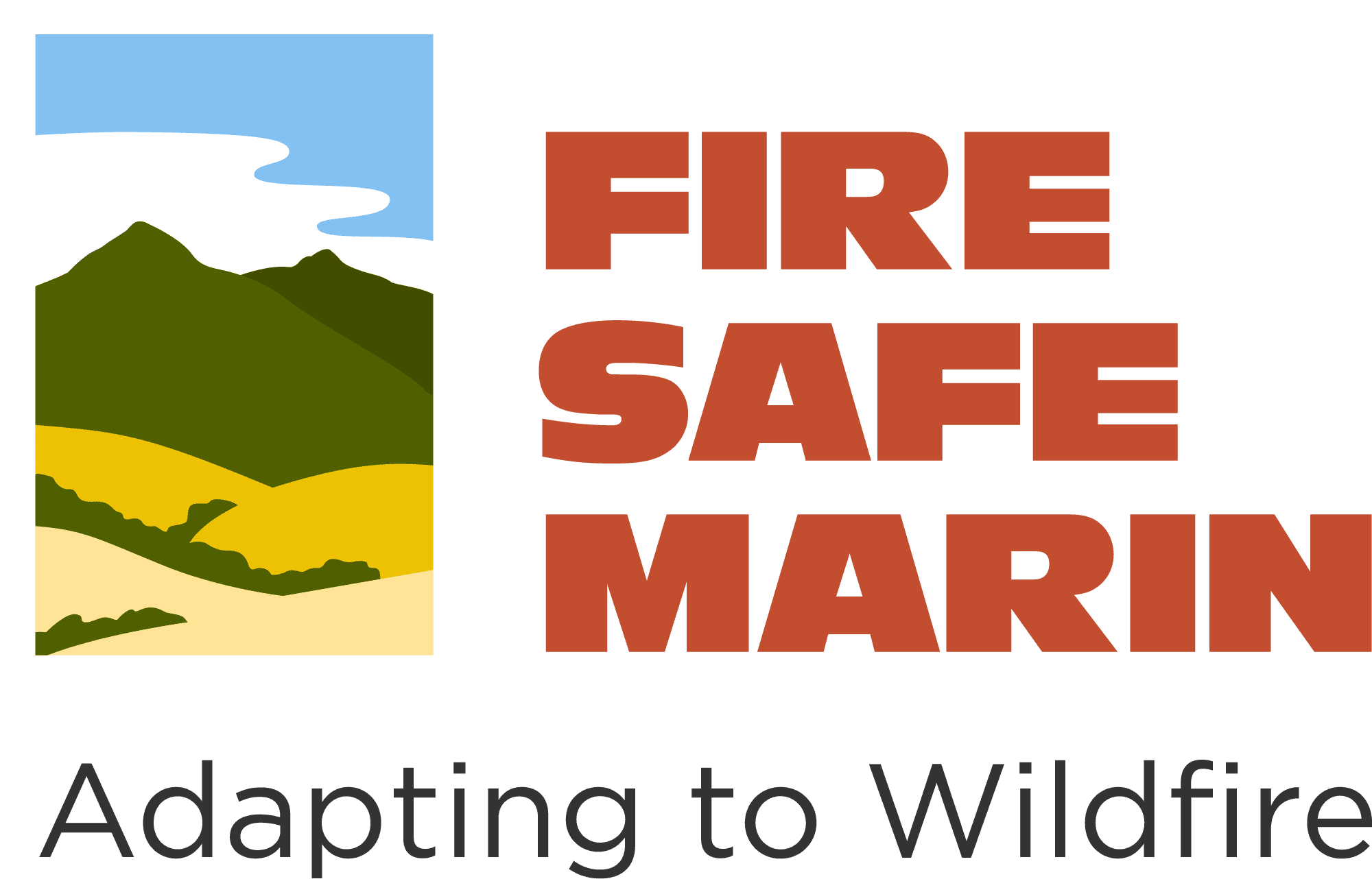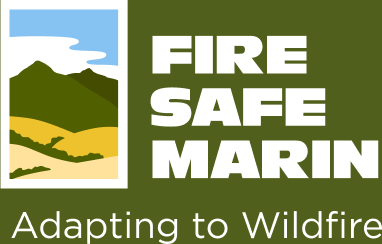Wildfire Insurance
Did you know that insurance discounts are available in California for homeowners who live in recognized Firewise USA sites?. Insurers offering discounts. Contact us for help organizing your neighborhood.
Get Your Finances and Property Ready for Wildfires
Your home is your largest asset. Protect it. Insurance is the critical backup plan enabling you to rebuild your home and protect your family after a wildfire. Follow these insurance tips as part of your wildfire preparedness plan:
Tip 1: Conduct an Annual Insurance Check-Up
Call your agent or insurance company annually to discuss your policy limits and coverage. Make sure your policy reflects the correct square footage and features of your home.
- Get an estimate for the cost of rebuilding after a wildfire from a local contractor. In Marin, most rebuilding estimates should start at $500 per square foot (or more), depending on construction quality and home features.
- Purchase building code upgrade coverage.
- Save money with a higher deductible, not lower coverage.
- Don’t underestimate to save money.
- Don’t rely on the purchase price or appraised value of your home.
Tip 2: Know What Your Policy Covers
Details matter. Ask for a full replacement cost policy that replaces all your items at current market price. Ensure that valuables like jewelry, antiques, artwork, firearms, and collections are covered.
Tip 3: Update Your Policy to Cover Home Improvements
If you make home improvements, be sure to call your agent to update your coverage.
Tip 4: Maintain Insurance
If your home is paid off, be sure to maintain homeowner insurance. Without insurance, will you have the money to rebuild your home?
Tip 5: Get Renter’s Insurance
Renters are just as likely to lose everything in a fire, and are often uninsured. Many insurers bundle renter’s insurance coverage with an auto insurance policy at affordable prices.
Tip 6: Get 2 Years of Living Expenses Coverage
Get at least two years of “additional living expenses” coverage, because that’s how long it could take to rebuild after a fire.
Tip 7: Act Quickly if Your Policy is Cancelled
If your insurance company notifies you that they will not be renewing your policy, don’t panic. Start shopping for a new policy ASAP. By law, they have to give you 45-days notice, and you may need that much time to find a replacement policy that you can afford.
Tip 8: Make a Home Inventory
Use a smartphone to photograph and video your belongings. Document the contents of your home before a fire occurs. Keep your inventory & photos stored off-site or online in the “cloud.”
- Video or photograph each room of your home.
- Remember to document contents of drawers and closets.
- Describe your home’s contents in your video.
- Mention the price you paid, where, and when you bought the item.
- Remember to note important or expensive items.
- Video your electronics, appliances, sports equipment, TVs, computers, and tablets.
- “Schedule” valuable items with your insurer before a fire strikes!
- Save receipts for major purchases.
- Store key documents and your home inventory off-site or in the cloud. Note that “fireproof” safes often do not survive the intense heat of a wildfire.
- Don’t forget to inventory what’s inside your garage.
See www.uphelp.org for additional insurance information and tips.
Non-Renewals
Some Marin residents have been informed that their insurer is not renewing their policy, for a variety of reasons – often associated with wildfire risk. Insurance companies manage their risk in catastrophe-prone areas.
- Insurers cannot insure all the properties in an area.
- It is important for them to be able to pay claims should there be a catastrophe.
- Having a healthy, competitive insurance market is good for consumers.
The Insurance Information Institute (I.I.I.) recommends that home or business owners shop and compare to find the best insurance coverage to meet their individual needs.
- In very high-risk wildfire situations, the California FAIR Plan is the insurer of last resort for fire insurance, and people usually purchase a wrap-around policy to cover other perils and liability along with it.
- They can usually get two or three quotes to compare.
- If they live in a wildfire risk area, it may be easier for them to contact a local insurance broker who knows which companies are writing new home or business coverage in that particular area.
- Policyholders Are Being Paid: Over $15 billion in claims have been paid out, and customers are being helped through the claims process.
- Wildfires Are Insurable: Unlike earthquakes, insurers are able to plan for wildfire risks. The California Earthquake Authority was a result of insurers leaving the market because they could not predict and insure that risk. Insurers are not leaving the home insurance market.
- Homeowners Drive Policy Switches: Policyholders are 2.5 times more likely to change their home insurer than to be non-renewed.

Did Your Insurer Notify You of a Non-Renewal?
The following information is provided by United Policyholders (www.uphelp.org) and Fire Safe Marin.
If you are one of the many Californians whose insurance company has notified you that they will not be renewing your home policy, do not panic, but start shopping ASAP. By law, insurance companies have to give you 45-days notice*, and you may need that much time to get them to reverse their decision and/or find a replacement policy you can afford.
In most parts of the state, you still have buying options; and, insurance companies are still competing for your business. But if you live in a brush-heavy or forested area that’s been hit by recent wildfires, it may be hard to find a company willing to insure your home. When you find a replacement policy, it will probably cost more but provide less protection than your old policy. And, this policy may be through what is known as a “non-admitted” insurer.” These types of companies are picking up customers that “admitted”** (well-known brand) insurers are dropping.
United Policyholders may be able to help you shop and deal with this unfortunate situation, and they are working on initiatives to fix it. To learn more about the reasons why so many insurance companies are reducing the number of homes they’re insuring in parts of California, visit the Advocacy and Action section of uphelp.org.
1. Try to Get Your Insurer to Reverse its Decision and Renew Your Policy
There are limited circumstances where an insurer must renew your policy:
- You have a policy with a guaranteed renewal provision. A few companies offer this. Some AARP members who bought through The Hartford have this protection.
- You lost your home in a declared disaster within the past two years: CA Insurance Code section 675.1 gives disaster victims the right to one or two renewals when their policy comes up for renewal.
- Your home was damaged in a declared disaster within the past two years.
What you can do:
- Act quickly! You have a very limited timeline to argue for a decision reversal!
- Contact your local fire department and request a wildfire hazard inspection immediately. They may be able to inspect your property, give you a list of corrections, and then once you complete the required work, write a letter attesting to your property meeting fire codes and standards. Note: your property MUST meet defensible space standards to the letter or the law before the fire department will write this letter! You should also consider making home hardening upgrades immediately as well.
- Contact your current insurance company and ask them if there are improvements you can make to your home that will help qualify you for a renewal. Give them your best arguments for keeping you as a customer. If you bought your expiring policy through an agent, ask them to go to bat for you with the company.
- NOTE: If your insurer did not give you 45 days notice, or their reasons for dropping you seem unfair, seek help from the California Department of Insurance (CDI) at 1-800-927-HELP, www.insurance.ca.gov.
2. Don’t Panic; Start Shopping
Contact the insurance agent you’ve been using, or ask trusted sources for recommendations to an “independent” insurance agent. Independent agents have relationships with multiple insurance companies. A “captive” agent that sells for companies like State Farm, Farmers, or Allstate probably can’t help you, as they’re limited to only one insurance company.
Visit UP’s website, www.uphelp.org, and click on the “Insurance Finder” link on the right side of their home page. Try using the Match UP Insurance Finder.
Try the California Department of Insurance’s shopping tools. They offer a list of CA home insurance companies and a list of companies that sell “DIC” (“Difference in Conditions”) policies that fill gaps in Fair Plan policies. www.insurance.ca.gov
If your best coverage and price option is through a “non-admitted” (also called “surplus lines”) insurance company, check their financial strength rating with Demotech, A.M. Best, or another agency before you buy. This is important. If a non-admitted insurer runs out of money to pay claims (becomes “insolvent”***), their customers are not protected by the same safety net that “admitted” well-known brands have under them, and the CA Dept. of Insurance has less oversight power over them.
3. Shop Smart
Your policy should cover what it would likely cost to rebuild your home in compliance with current building codes if it were to be completely destroyed by a natural or manmade disaster of any kind. But many policies don’t. Don’t blindly trust that your agent or insurer is selling you a policy that will fully protect your assets. UP surveys show that 2/3 of U.S. homes are underinsured. Shop for a policy that will adequately insure your dwelling for a total loss fire, (including building code upgrades) then add coverage for flood and quake protection if you can afford it. Ask the right questions and take good notes while shopping.
- Aim to insure your property for Replacement Cost Value, not depreciated Actual Cash Value.
- Coverage for building code upgrades and an extended replacement cost rider are worth paying for.
- Your dwelling coverage limit should match local construction costs (per square foot) for a home of similar style, age and quality, plus an “extended replacement cost” feature for extra protection.
- Choose the highest deductible you feel comfortable with to keep the cost of your coverage manageable.
4. The FAIR Plan is a Last Resort
If you strike out in the “normal” marketplace, you can buy home insurance through the California Fair Plan. Call them at (800) 339-4099 . The CA FAIR Plan is a state-run home insurance program for people who can’t find a better option. Fair Plan policies provide only basic fire protection (no liability or theft) and cost more than a traditional policy. If you end up having to buy a Fair Plan policy, we recommend two things: shop again in six months. New options may be available. And, if you can afford to, add supplemental coverage for what a Fair Plan policy excludes. Not all insurance agents are familiar with these options, so visit http://www.insurance.ca.gov/01-consumers/105-type/5-residential/carriersDICpolicies.cfm for more information.
* With a few exceptions, your insurance company can drop (non-renew) you as long as they give you written notice at least 45 days prior to the date your old policy will expire, and as long as they are following their own guidelines and not discriminating against you. Their guidelines must be objective, have a substantial relationship to the risk of loss, and be applied consistently. Common reasons for non-renewal include wildfire risk, the age or condition of the property, lack of defensible space, type of roof or construction. The 45-day notice must contain the reason or reasons for the nonrenewal, the telephone number of the insurer’s representatives that handle consumer inquiries or complaints, and a statement that you can have the insurer’s nonrenewal decision reviewed by the CDI.
** “Admitted” insurers are fully regulated by the CA Department of Insurance and their customers are protected by the CA Insurance Guarantee Association (CIGA) if their insurer becomes insolvent (runs out of money). “Non-admitted” insurers are not regulated.
*** CIGA – the CA Insolvency Guarantee Association pays up to $500,000 per home if the insurer goes insolvent.
Please notify United Policyholders if you have trouble finding affordable coverage for your property by emailing info@uphelp.org.
Home Insurance Inspection Alert for California Residents
ALERT: “Fire-Safe” Inspections and Repair Requirements by Insurers
There has been an increase in insurance companies doing inspections before they will renew a policy or insure a new home. This is happening most often in neighborhoods known as wildland urban interface (WUI) zones and areas considered to be at risk for wildfires. Some insurers are having their own staff do the inspections. Others are hiring inspectors who prepare a written report when finished. After the inspections, insurance companies are requiring repairs or improvements that must be made before they will insure or renew coverage on the home. Some of these requirements are appropriate and affordable. Others are not. In some cases, they are exceeding local and state building and safety codes.
Not all insurers are doing this. Some insurers are saying they are looking for signs of deferred maintenance, aging roofs, overgrown trees, brush close to the home, etc. Some homeowners report that they’ve been asked to do things that seem nitpicky such as repaving a driveway that is old but perfectly fine, or things that can’t be done like clearing brush beyond their property line.
This is not an entirely new phenomenon. United Policyholders has been guiding nervous property owners on dealing with non-renewals and insurance-buying challenges in California, Colorado, New York, Florida, Louisiana, and elsewhere, for many years. Many insurers, including the CA Fair Plan (see below), routinely inspect homes in forested/heavy brush areas.
What is new is the increase in detailed inspections and correction requirements by some brand name insurers, plus wildfire risk scoring by data vendors and growing concerns over climate change and drought.


Are there limits to what an insurance company can inspect and ask you to do?
Yes, but they need updating. There are legal limits to how much brush an insurer can ask you to clear, but not on the types and extent of repairs/improvements they can ask you to make as a condition of buying insurance. Common sense says you have a reasonable expectation of privacy in your home. If you feel an inspector is being intrusive or overly probing, you are free to ask them to leave, decline an inspection and take your business elsewhere. If there aren’t many insurance options in your area, and you want to be insured by a company that’s insisting on a home inspection, do your best to cooperate.
Contact your local fire department to understand local rules and options. In some communities, fire department officials will visit homes and help homeowners by certifying the adequacy of their brush clearance for an insurance company.
What can a property owner do?
- If you can’t or don’t want to make the repairs or improvements the insurer is requiring you to make, try explaining your position and working things out directly with them. If you can do some but not all the work they’re asking you to do – that may be a compromise they can accept. If you have an agent or broker, seek their help. If that doesn’t work, start shopping for a different insurer.
- If the insurer is asking you to make improvements or repairs that seem unreasonable or unrelated to fire risk, such as replacing an old but perfectly good driveway or composite or tile roof, file a complaint with the California Department of Insurance.
- If you can’t find an insurer that will insure your home as-is, and you can’t afford required improvements, you may have to buy a policy with special exclusions or limitations. The classic example would be a policy that only pays “ACV” (actual cash value) to repair your roof instead of the full cost of replacing it. Avoid this if you can.
- If your insurer non-renews your policy and isn’t willing to reverse their decision, regardless of improvements or repairs, be sure they gave you the legally required 45-day notice and are complying with the law. The same applies if you receive a mid-term cancellation notice.


Don’t be afraid to shop and switch.
There is little to be gained by staying loyal to an insurer that no longer wants you as a customer. Start shopping. United Policyholders gives tips (https://uphelp.org/buying-tips/) to make comparison shopping easier than ever. Their library offers tools and guidance on picking a good agent or broker, comparing policy coverages, exclusions and deductible options, and insuring your property to value. You’ll want to look for a financially solvent company with a good reputation. You can use the California Department of Insurance’s “Premium Compare” tool to get a rough idea of pricing. Ideally, buy insurance through an insurer that’s licensed and “admitted” in California so you are fully protected by the state’s laws and regulations. If your only option is buying from a “surplus line” or “non-admitted” company, that’s not the end of the world. Do your best to get coverage that’s as good or better than what you had before you were dropped.
If you just can’t find an admitted or non-admitted company that will insure your home, your back up is the California Fair Plan. The California Fair Plan sells an Actual Cash Value home insurance policy to property owners who’ve diligently searched but have been unable to buy home insurance. FAIR plan policies provide basic and optional coverages but no liability/theft protection. If your only option is a Fair Plan policy, shop again for other options at least once a year and consider buying a supplemental “Difference in Conditions” policy or endorsement(s) to fill gaps in your Fair Plan policy.
“My insurer will renew my policy but for a much higher price.”
All insurers licensed to operate in California must file their underwriting guidelines and request approval from the Department of Insurance before raising their rates. If you think your rates have been unfairly raised or that you’ve been placed in an unfairly high risk category, seek help from the Department of Insurance by calling their toll-free number 1-800-927-4357, asking a question on their website, or by filing a “Request for Assistance.” Even if the Department says they cannot help you because the insurer acted within its rights, it’s important to alert and inform them by going on record with a complaint.

“I’ve been with the same company for years and am afraid to switch.”
There are plenty of financially strong and reputable insurance companies in California. If you take the time to comparison shop available options, switching companies may get you the same coverage at the same or even a lower cost. But yes, depending on the characteristics of your home and region, you may end up paying more.
If you’ve been using an agent that only sells for one insurer (e.g., State Farm, Farmers, or Allstate), you will likely find many more options via an independent agent (also called a broker). The Department of Insurance maintains a current list of licensed insurers in California with contact information.
California law allows insurers to require that you have 100 feet of “defensible space” around your home (Cal. Pub. Res. Code. Sec. 4291). They can require you to clear more than 100 feet if a fire expert provides findings that such a clearing is necessary to significantly reduce the risk of transmission of flame or heat sufficient to ignite the structure, and there is no other feasible mitigation measure possible to reduce the risk of ignition or spread of wildfire to the structure. The greater distance may not be beyond the property line unless allowed by state law, local ordinance, rule, or regulation (Id. at (a)(3)).
Avoiding Frauds and Scams After a Disaster
Here are a few best practices to avoid frauds and scams from United Policy Holders:
- Educate yourself at www.uphelp.org, and use our links to state contractor licensing agencies.
- The best reference for any professional is a satisfied customer who is willing to speak with you and share pictures of their completed project.
- Never give out your personal information over the phone, (social security number, FEMA number or bank account information).
- Advance deposits are commonly required for professional work, but the amount should be reasonable (normally 20-33%). A request for a large up-front payment is a red flag.
- Only use licensed contractors and verify their license status. Always ask to see a vendor’s business license and insurance or bonding documents before hiring them.
- Don’t allow anyone to rush or pressure you into signing contracts of any kind.
- Before you hire a builder, have an attorney review your contract. Before signing any contract, do your best to understand how and when you can get out of it if necessary. Volunteer attorneys are often available in disaster areas to review contracts free of charge.
- Before you hire professional help with an insurance claim, understand how their fee will impact your available repair/rebuild funds and under what conditions you can cancel the contract or terminate their services and your payment obligation.
For more detailed guidance from United Policy Holders: Avoiding Frauds and Scams After a Disaster









